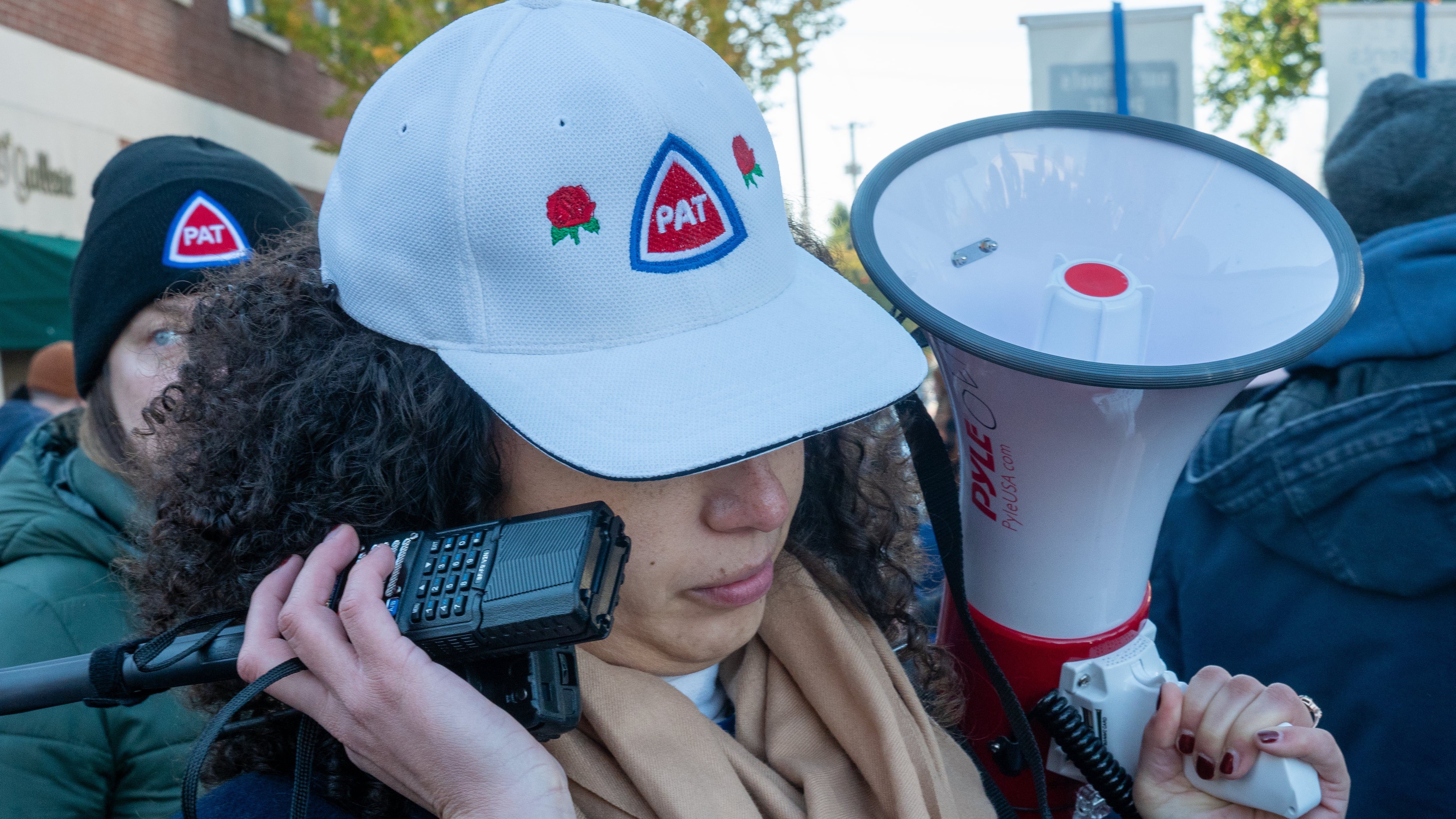As the teachers’ strike closes Portland Public Schools for a second week, all signals are that students will be out of school through Thanksgiving. But there might be one force left that’s strong enough to get the contract to the finish line: health insurance.
All eyes are on Nov. 16: If the teachers are not back in classrooms that day, they will not be eligible for benefits in December, says Portland Public Schools. The district plans to mail its striking teachers a packet on Nov. 16 that instructs them how to enroll in spendy COBRA insurance plans.
Portland teachers already earned their November health insurance coverage by virtue of working in October, so these changes won’t start to affect their coverage until December. But receiving a packet about transitioning to COBRA insurance in the mail could alarm the striking educators, who have steadfastly picketed since Nov. 1 in the rain in front of empty schools.
PPS flagged this as its course of action in an Oct. 23 letter to educators: “Coverage will terminate at the end of the month if an employee ceases to work or is not paid for half of the contract days of the month,” they wrote, indicating teachers will be cut off Dec. 1.
The Portland Association of Teachers says the district’s threatened cutoff date is wrong, and that in fact the coverage expires Dec. 15. The Oregonian noted the dispute yesterday.
At a press conference at the state Capitol in Salem on Monday, Jacque Dixon, PAT’s vice president, maintained that the pay period that ends Nov. 15 “provides educators with their December health insurance.”
“I’m not sure that that is really a factor that we need to worry about right now, but I’m confident that [the Oregon Education Association] will take care of it if necessary,” Dixon said.
PAT declined to comment on the matter beyond Dixon’s statement at the press conference.
But a review of the teachers’ benefit summary appears unambiguous: If a school employee leaves work, their insurance coverage cuts off at month’s end.
PAT employee group’s 2023 benefit summary states that “coverage will terminate at the end of the month the employee resigns or ceases to be paid, unless the employee worked, or was paid, more than half the contract days of the month. Coverage will terminate at the end of the following month in this case.”
Teachers walked off the job Nov. 1.
A lobbyist representing the health care industry evaluated the two assertions for WW and concluded that the Dec. 1 cutoff date looks to be the correct one. If an employee doesn’t work Nov. 1-15, “even a really generous benefit” probably wouldn’t carry an employee until the end of December, he says.
He says these misunderstandings are common when there is a mismatch between a monthly calendar and a pay-period calendar, like at PPS. “People do get confused around that point.”
If teachers return to work after Nov. 16, back pay will depend on the terms for returning back to the classroom agreed upon in the contract, PAT told its members on Nov. 1.
But if they stick it out on the picket line? It’s COBRA.
COBRA (the Consolidated Omnibus Budget Reconciliation Act) lets people keep their workplace health coverage for up to 18 months after leaving a job. It’s known for being wildly expensive because members typically must pay the employer’s share of the premium as well as their own.
PPS encouraged any teachers who have questions about COBRA to contact the trust office at 503-486-2107 or e-mail SD1@zenith-american.com.
The shift will place a new stress on the Oregon Education Association, the statewide teachers’ union. The OEA provides the teachers’ relief fund, where members who actively participate in strike activities earn $120 a day. The union would not comment on how much money is in their fund.
The district says the total cost of COBRA for all active, current benefit-eligible members for the month of December is $5,118,784—the amount OEA will be on the hook for if the union indeed covers everyone’s transition to COBRA.
In an email to WW, OEA president Reed Scott-Schwalbach called the district’s plan to cut off health insurance an “underhanded tactic” that could trigger legal action.
“I want to make this clear: OEA will make sure that our members in Portland have access to health insurance until they are able to secure a fair contract,” Scott-Schwalbach said. “But the very notion that PPS is threatening to unlawfully terminate earned health care benefits for Portland families in an attempt to intimidate educators into abandoning the student-centered proposals they are fighting for is not only shameful, but it also demonstrates once again that the district is not focused on doing the work to reach a fair contract and get kids back into classrooms.”
